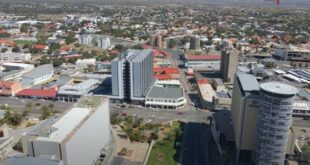President Jacob Zuma of South Africa again survived a no-confidence vote in parliament on Tuesday in the most serious attempt yet to unseat him after months of growing anger over alleged corruption and a sinking economy.
Zuma had survived six previous attempts to dislodge him in parliament, but this was the first to be held by secret ballot after parliamentary speaker Baleka Mbete on Monday made the surprise decision to allow it. Opposition parties hoped it would encourage disgruntled legislators within the ruling African National Congress party to vote against Zuma, who has faced numerous allegations of graft while South Africa’s economy has fallen into recession.
Instead, ANC members in the chamber began singing shortly before the vote results were announced and soon broke out in cheers, while party supporters gathered outside started dancing.
“We reiterate that we will never endorse or vote in favour of any motion that seeks to cripple our country,” the ANC said in a statement issued immediately after the results were announced.
The head of the main opposition Democratic Alliance party, Mmusi Maimane, had urged lawmakers before the vote to take their country back. “This is a historic day. Indeed, since the dawn of our democracy the stakes have never been higher,” he said.
Widespread frustration over Zuma has hurt the ANC, the former liberation movement that has led South Africa since the end of white minority rule and the first all-race elections in 1994. On Tuesday, former President Thabo Mbeki said ANC lawmakers must ask themselves if they have confidence in Zuma, according to a video posted by a Nairobi-based journalist on Twitter.
“Those MPs must recall that they are the representatives of the people, and must therefore represent the people in terms of what they do this afternoon,” Mbeki told reporters.

The ANC holds a majority of the 400 parliament seats, and the party had repeatedly said its members would not support the opposition-led attempt to unseat the president. The party has 249 parliamentary seats, five of which are currently vacant, said a party spokeswoman, Nonceba Mhlauli.
The no-confidence motion needed 201 votes to succeed.
The draft of the motion submitted by the Democratic Alliance accused Zuma of “derelict leadership” and said the president has “lost all sense of rationality and sound judgment,” harming the country’s economy and its poorest citizens.
Demonstrations both for and against Zuma, who has led South Africa since 2009, took place in front of the parliament building in Cape Town before the much-anticipated vote.
“As you can see, thousands of people have reached the end of their tether in terms of what is happening in our beautiful country, our beautiful, diverse country that we should enjoy but we can’t enjoy because millions of our people are without jobs,” said one protester, Johnnie Jacobs.
“We have got to get rid of this man before he destroys everything that we have all worked so hard for,” said another protester, Anne Shirley.
While Zuma’s term continues until elections in 2019, there have been calls from within the ANC for him to quit earlier and allow the party to shore up support before the vote. The ruling party is expected to replace Zuma as ANC president at a meeting in December.
The reputation of Zuma, who spent a decade in prison for his anti-apartheid activities and has been popular among some South Africans for his personal warmth and populist policies, has been tarnished by allegations of impropriety.
Last year, the Constitutional Court ruled unanimously that Zuma “failed to uphold” the constitution by not paying back some of the $20 million-plus in state money used to upgrade his rural home. Zuma’s ties to the Gupta family, immigrant businessmen accused of trying to manipulate government leaders and state companies for financial gain, also have stirred public anger.
The president’s firing of widely respected finance minister Pravin Gordhan in a Cabinet reshuffle in March led two agencies, Fitch and Standard & Poor’s, to lower South Africa’s credit rating to below investment grade, or junk status.
AP
 THE AFRICAN COURIER. Reporting Africa and its Diaspora! The African Courier is an international magazine published in Germany to report on Africa and the Diaspora African experience. The first issue of the bimonthly magazine appeared on the newsstands on 15 February 1998. The African Courier is a communication forum for European-African political, economic and cultural exchanges, and a voice for Africa in Europe.
THE AFRICAN COURIER. Reporting Africa and its Diaspora! The African Courier is an international magazine published in Germany to report on Africa and the Diaspora African experience. The first issue of the bimonthly magazine appeared on the newsstands on 15 February 1998. The African Courier is a communication forum for European-African political, economic and cultural exchanges, and a voice for Africa in Europe.
































